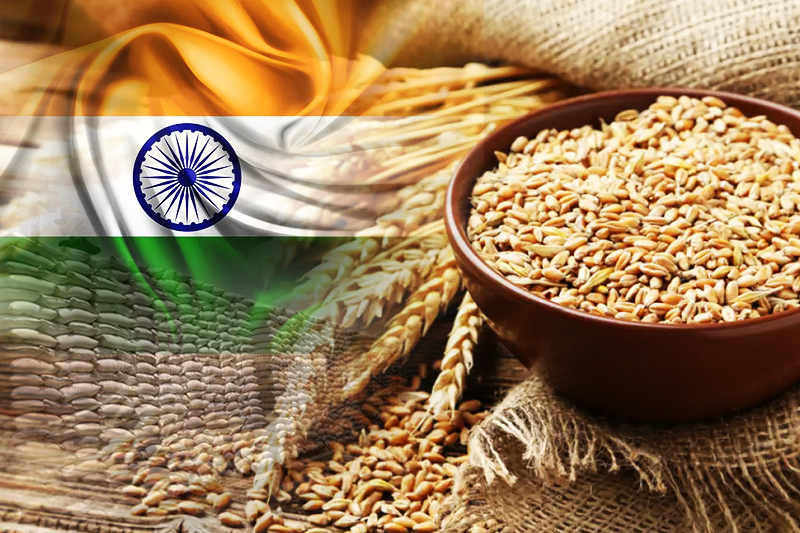India says the quantity Bangladesh seeks is too high

Іndia has suggested that Bangladesh review the proposed import quota on seven food items as the neighbouring nation believes the quantity sought as a guaranteed supply is too high.
For example, Bangladesh has proposed that India guarantee a supply of up to 45 lakh tonnes of wheat each year.
However, India believes the quantity is too high given that its overall exports of the grain to Bangladesh stand at an annual average of about 7 lakh tonnes, according to Commerce Minister Tipu Munshi.
Bangladesh annually imports nearly 65 lakh tonnes of wheat from different sources, particularly Russia and Ukraine, to meet local demand.
But following Russia’s invasion of Ukraine, the price of wheat increased worldwide as availability of the grain became uncertain due to ensuing volatility in the global supply chain.
So, the government has been looking for a guaranteed supply of seven food items to avert any potential food crisis amid the ongoing economic uncertainty.
As such, the commerce minister paid a two-day visit to India on December 22 and 23 to this end.
Apart from wheat, Bangladesh asked for a secured supply of 7 lakh tonnes of onion, 30,000 tonnes of lentil, 20 lakh tonnes of rice, 15 lakh tonnes of sugar, 10,000 tonnes of garlic and 1.25 lakh tonnes of ginger each year.
In response, India said all the proposed quotas are too high as it found that annual exports of these items to Bangladesh were far less than that being demanded, Munshi told journalists at a press conference at the commerce ministry in Dhaka yesterday.
India assured it would guarantee a supply of these goods after the proposal is reviewed as withholding such large quantities could lead to waste or even a domestic shortage if Bangladesh does not import them at the promised prices.
“So, the government will review the quantity and send the proposal again to India,” Munshi said, adding that he met Indian Commerce Minister Shri Piyush Goyal and Finance Minister Nirmala Sitharaman during his visit.
Munshi also said formal negotiations for signing a proposed trade deal between the two countries, the Comprehensive Economic Partnership Agreement, may start from February next year as India has asked for two months to study the deal further.
During his visit, Munshi demanded the Indian government issue a full withdrawal of the anti-dumping duty on exports of Bangladeshi jute and jute goods to India.
The current tenure of the anti-dumping duty, which was imposed in January 2017, will come to an end on December 31 this year.
Munshi had informed Indian officials that some 25,000 workers in the country will become jobless if the anti-dumping duty continues.
In response, they assured the issue would be discussed further to find an amicable solution.
Discussions were also held on the possibility of using local currencies to conduct bilateral trade to address the US dollar crisis amid the ongoing Russia-Ukraine war.
India has been continuing trade with Russia and Iran with their respective currencies instead of the US dollar, Munshi said.
As such, Bangladesh Bank and other government agencies have been working on allowing trade in local currencies with India, he added.
Upon Munshi’s request, India has assured long-term visa issuance for business and medical travellers from Bangladesh.
They also agreed to form a 20-member body of chief executives of big companies in the private sector of both countries to discuss different trade issues.
In addition, both countries agreed to set up more border haats to take the number to 10. At present, four haats are operational along the bordering areas of Bangladesh and India.
Another border haat would be opened up within one-and-a-half months as the work is underway now, Munshi said.
India is currently the second largest import destination for Bangladesh after China. In fiscal 2021-22, Bangladesh imported goods worth $13.69 billion from the neighbouring nation and exported goods worth $1.99 billion, according to data from the commerce ministry.
Write to us
Our manager will contact you soon



